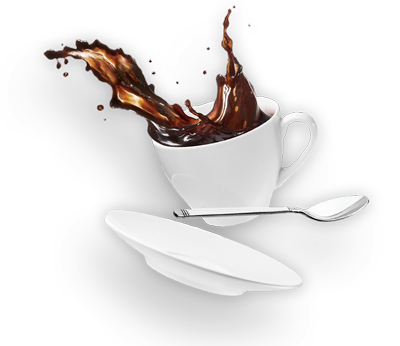Do you reach for the coffee pot because you love the smell and taste of coffee? Or, are you looking for that hit of caffeine? Coffee, whether it’s piping hot or ice-cold, keeps up motivated, focused, and pushes us to get the job done. As you feel your energy levels dip in the late afternoon, you immediately reach for a fresh cup. That begs the question.
 So, How much coffee is healthy?
So, How much coffee is healthy?
While the answer is straightforward, the implication is not. Ultimately, the daily recommended allowance for caffeine is 400mg. That works out to around 4 cups of coffee a day. However, if you are a soda drinker, energy drink lover, or partial to a cup of tea to break things up, then you have to work that into your daily limit. There have been a plethora of studies on whether coffee drinking is healthy or not. The fact of the matter is, coffee has a wide range of health benefits. However, there’s a fine line between enjoying the health benefits and over-consuming caffeine to the detriment of your health.
There are questions beyond caffeine, too. Of course, the healthiest way to consume a cup of coffee is on its own, as it comes, simply black with no additions. There is no fat in a cup of black coffee, and the calorie count is nominal. When you add cream and sugar, then you’re running into dicey territory. If it’s a single cup, then it might
not be so bad… but it adds up. So, when you heap two teaspoons of sugar into your cup of coffee and you consume four cups a day, you’re talking about 160 needless daily calories. That doesn’t sound so bad I can hear you mumbling. According to the American Heart Association, women should consume no more than six teaspoons and men nine teaspoons of sugar daily. Bear that in mind as you hover over the sugar jar while making your next pot of coffee.
So, how much coffee is too much? What’s the limit?
You should stop yourself at four cups a day. Now, if you want to continue consuming energy drinks and soda, then you have options. Firstly, you can opt for caffeine-free soda to avoid overdoing it. You can also reach for decaffeinated coffee. Ideally, you would get your caffeine intake out of the way before 2 in the afternoon and live a caffeine-free life for the rest of the day. You might be balking at the idea of missing out on your later afternoon boost, but if you consume caffeine too late in the day it will negatively influence your sleep pattern. It creates a knock-on effect, making it more difficult to sleep means you reach for more caffeine the following day, creating a vicious caffeinated cycle of sleeplessness. That’s not a habit you want to get into!
According to the Mayo Clinic, you may be consuming too much caffeine if you’re experiencing side effects like nervousness, fast heartbeat, headaches, irritability, muscle tremors, and insomnia. Some people are more sensitive to caffeine than others, so you may experience these side effects even if you limit your intake. If you are experiencing this, then consider introducing more decaffeinated coffee to your routine. As a note, the biological half-life of caffeine is anywhere from seven to nine hours. If you drink four
cups of coffee before lunch, the caffeine will be long gone from your system by the time bedtime rolls around. If you space those cups out throughout your day, then it could contribute to insomnia and possibly anxiety if you overdo it.
There is one last note to make, for those aged under 18, there needs to be greater control around caffeine intake. The American Academy of Pediatrics suggests limiting children’s caffeine intake to just 100mg a day. That is specifically for children aged between 12 and 18. So, as tempting as it is to allow your high school-aged children a cup of coffee or two, take caution, especially if they’re also soda drinks. Additionally, there isn’t a suggestion as to what is an appropriate caffeine intake for children under 12, so it’s best to avoid it altogether.
Now you know, for adults over the age of 18, four cups of coffee is a healthy daily limit. Beware if you frequently visit coffee shops, many offer double shots as standard which will increase your intake far beyond the daily recommended allowance.





